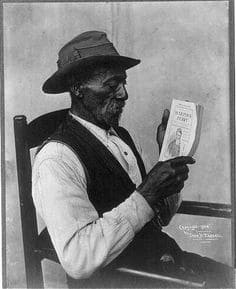Literacy Blogs
- All
- 3-cueing
- academic learning time
- academic vocabulary
- accommodations
- accountability testing
- Active View of Reading
- adolescent literacy
- afterschool programs
- alphabet
- amount of instruction
- amount of reading
- argument
- assessment
- auding
- author awareness
- automaticity
- balanced literacy
- beginning reading
- Book Buddies
- Book Flood
- challenging text
- classroom organization
- close reading
- coaching
- cohesion
- Common Core State Standards
- complex text
- comprehension strategies
- content area reading
- context analysis
- curriculum materials
- Daily 5
- decoding
- departmentalization
- DIBELS
- dictionary skills
- digital texts
- disciplinary literacy
- dyslexia
- early interventions
- effective teachers
- Emily Hanford
- executive function
- family literacy
- fingerpoint reading
- foundational skills
- graphic novels
- guided reading
- heterogeneous grouping of students
- homework
- improving reading achievement
- independent reading
- independent reading level
- informal reading inventories
- informational texts
- instructional level
- invented spelling
- jigsaw instruction
- knowledge
- leadership
- learning disabilities
- Lexiles
- linguistic comprehension
- listening comprehension
- literacy charities
- literacy policy
- literary interpretation
- main idea
- morphology
- motivation
- narrative text
- National Early Literacy Panel
- nonsense words
- oral language
- oral reading fluency
- paraphrasing
- Pause, Prompt, Praise (3P)
- personalized learning
- phonemes
- phonemic awareness
- phonics
- press and media
- principals
- prosody
- Readers' Workshop
- reading comprehension
- reading disabilities
- reading intervention
- reading levels
- reading models
- Reading Recovery
- reading research
- reading skills
- reading strategies
- reading to children
- reading wars
- reading-writing relations
- remedial reading
- rereading
- Response to Intervention
- Scarborough's Rope
- science of reading
- seatwork
- semantics
- sentence comprehension
- sequence of instruction
- set for consistency
- set for variability
- shared reading
- shared reading
- sight vocabulary
- simple view of reading
- Simple View of Reading
- small group instruction
- social studies
- sound walls
- Special Education
- speech-to-print phonics
- spelling
- stamina
- summarizing
- Sustained Silent Reading
- syllabication
- syntax
- syntax
- testing
- text complexity
- text interpretation
- text reading fluency
- text structure
- theme
- think-pair-share
- trauma
- visualization
- vocabulary
- word walls
- writing
- zone of proximal development (ZPD)
Is Print Awareness Part of the Science of Reading?
Teacher question: With all the talk about the science of reading (phonics, phonemic awareness, knowledge building, etc.), I’m not hearing anything about print awareness. Should we still teach that and, if so, how do we do that? Shanahan response: I don’t hear much about print awareness these days either, though I think it is included in every set of state educational standards. But I never (until now) get asked about it. I think there are many reasons for the lack of interest. First, is its transience. It only matters for a brief window of time. Once kids are reading, print awareness can be ...
My Problem with Teaching Text Organization
Years ago, I posted a blog that recommended teaching “text structure” (March 17, 2019). Such instruction can improve reading comprehension – as proven by copious numbers of rigorously designed research studies carried out with a wide range of students (e.g., across the grades, English Learners, kids with learning disabilities). Texts are not just lists of sentences. Authors organize what they have to say so that readers can follow the discourse and remember the information For example, stories depend on plot structure or story grammar. Characters have goals and confront problems in trying to achieve those desired outcomes. Accordingly, stories include one or ...
Eight Ways to Help Kids Read Complex Text
Blast from the Past: This entry first appeared September 6, 2016, was reissued June 27, 2020, and January 25, 2025. I’ve updated it a bit – based on my new book (which is currently in production and should be out soon). Avoiding teaching students with grade level texts, holds most kids back rather than propelling them forward. This blog entry provides practical advice as to how to teach successfully with such books. Teacher Question: My district is currently "grappling" with the idea of asking students to read complex text if they are significantly below the grade level. As an example, within one fourth ...
Are We Getting the Right Information When It Comes to the Science of Reading?
Recently, I heard from my colleague and friend, Claude Goldenberg. Claude is one of the most knowledgeable experts on second language literacy. He is not only intelligent, sensitive, and reliable, but someone who takes the idea of applying science to education seriously. He noticed a problem and pointed it out to me. It was something that I had recently noticed myself in a very different context, so I was intrigued. He and I became a kind of mini “committee of correspondence”, exchanging emails about our concerns. These days there is much attention to the science of reading in public discourse and policy ...
’Tis the Season of Test Prep: Bah Humbug
Blast from the Past: Usually, “Blasts from the Past” are re-postings of earlier blogs, with minimal revision. This one is a bit different. This time I’ve combined and revised two earlier postings (December 8, 2018; January 19, 2019). Each year, I receive numerous requests from teachers seeking ways to prepare their students to excel on the accountability tests or to resist their school district’s pressure to do a lot of test prep. Although it is only December, those letters have already started to come in. I think this is the earliest ever! Teacher question: We’ve been given a directive to provide plans/resources ...
Literacy Charities for 2025
Each year, Shanahan on Literacy recommends literacy charities that I hope you might consider. I know that, like me, you have deep commitments to children’s reading success. It makes sense to include in our charitable giving organizations that distribute books to kids or that support their reading education in other ways, too. Annually, I consult Charity Navigator (U.S.) and Charity Intelligence (Canada) to identify the top-rated literacy charities (4-stars in U.S., and 5-stars in Canada). You can be sure that the charities listed here: Are international, national, or multi-regional in scope, Focus entirely or mainly on providing books and literacy instruction to populations in need, Provide ...
Three-Cueing and the Law
Teacher Question: What is your thinking on teaching cueing systems? Shanahan Response: When I was a young boy, I learned about King Canute. He was the one who revealed the limits of his power by ordering the tides not to come in. They came in anyway. More about that later. This question about cueing systems was posed to me a couple of weeks ago by a colleague I hadn’t spoken with in a long time. I wasn’t surprised by his question. He knew I was a fan of explicit phonics instruction and over the past couple years some states have banned three-cueing. I’ve written about ...
Is Comprehension Better with Digital Text?
This blog first posted on October 7, 2018, and reposted on November 9, 2024. The reason for the repost is because of the great amount of relevant research that has been published since it first appeared. Over these six years, there have been seven additional meta-analyses, all but one concluding that we comprehend screens less well than paper (Clinton, 2019 – 29 studies; Delgado, et al., 2018 – 54 studies; Díaz, et al., 2024 – 49 studies; Furenes, et al., 2021 – 39 studies; Kong, et al. 2018 – 17 studies; Öztop, & Nayci, 2021 – 12 studies). The one exception ...
Do middle and high school students need fluency instruction and what counts as instruction?
Teacher Question: An educational consultant came to our district and she and I disagreed over the idea of fluency instruction in the middle school. Our middle and high school classrooms are mostly homogeneously grouped, with many struggling readers three or more grade levels. She said that if we are teaching fluency, there should be a plethora of data to support it, and that all students do not need fluency work. I disagree with her, but I was not sure if I should push it because maybe we are not exactly "teaching fluency." (We are less teaching fluency, than having students practice it). If all ...
How Can I Teach with Books that are Two Years Above Student Reading Levels?
Blast from the past: Originally posted February 2, 2013; re-issued October 12, 2024. Over the past 15 years, I have issued several blogs concerning the value of teaching students to read more challenging texts than we have used in instruction in the past. Despite a growing body of evidence showing that teaching students at their “instructional reading level” provides no learning benefits – and that sometimes it limits learning – most teachers continue to avoid challenging text by moving kids to easier text, reading texts to the students, or replacing texts with other sources of information (e.g., videos, teacher presentations). ...









